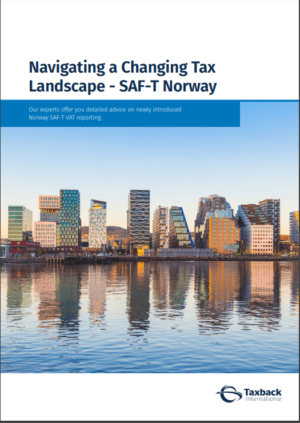What is the VAT Rate in Norway?
25%
In Norway, the standard VAT rate is 25%. In case of supply of certain foodstuff the supply is subject of 15% reduced VAT rate. The VAT rate of 6% that was previously introduced ended on 30 September 2021 and from 1 October 2022, the low VAT rate of 12% will come into effect.
This VAT rate will apply to the following services
- The supply of passenger transport
- Public broadcasting companies
- Admission to some cultural and sport events
- Accommodation in hotels and letting cabins
In Norway a special VAT rate of 11.11% is also applicable for fishermen’s sales exclusive the dealers.






